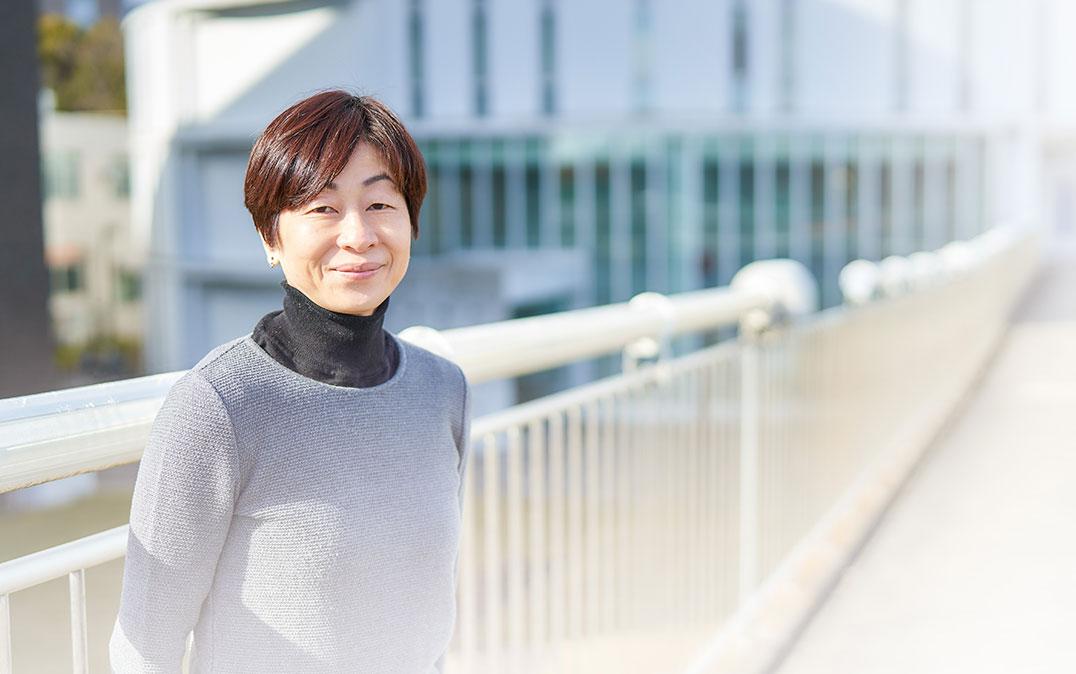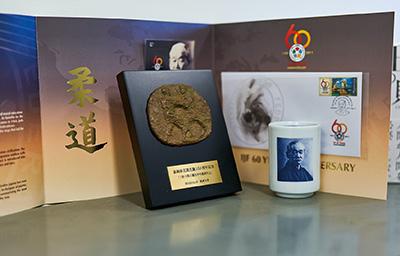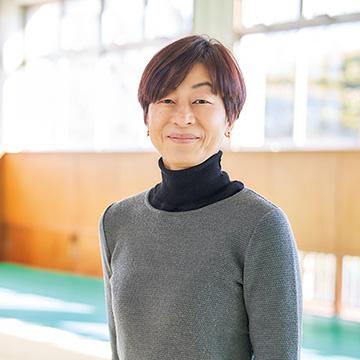TSUKUBA FRONTIER
#036 Enriching the Value of Athletes: Second Careers to Enhance the Social Significance of Sports
Professor YAMAGUCHI Kaori, Faculty of Health and Sport Sciences

The number of top Japanese athletes competing on the world stage is increasing. However, no matter how good an athlete is, he or she will eventually retire and live as a regular member of society. While they are still active in their sport, athletes do not have much opportunity to think about what path they will choose upon retirement, and how they will engage with society. Second career education is needed to help athletes who have devoted their lives to sports find their post-retirement niche in life, enabling them to give back to society.
The growing importance of sports management

Many people enjoy sports in their daily lives. However, the world of sports is not only about competing and watching games. In order to promote various sports, it is necessary to have consistent management, covering everything from finding talented people, coaching them, and developing them into top athletes, to post-retirement career development. Prof. Yamaguchi's research examines the overall sports system from a variety of perspectives, including the organizational management of the various sports organizations that back up such athlete development and the links with sports policy.
Sports organizations often rely on volunteer athletes to run their operations, something which is perhaps a holdover from the days when amateur sports were the mainstream, and are more likely to be influenced by human relationships such as master-disciple relationships than by rules. As a result, if there is a problem, they tend to cover for each other and hide it behind the spectacular achievements of the athletes.
Behind the rise of Japanese athletes in many sports is the government's policy of supporting sports. When taxpayers' money is invested to build facilities and strengthen athletes, accountability and verification of cost-effectiveness are required, so the governance of sports organizations also attracts attention. To this end, Prof. Yamaguchi was also involved in the development of the Japan Sports Agency's Sports Organization Governance Code (2019), a set of guidelines for this purpose.
Social roles of top athletes
Issues surrounding sports are often the subject of social debate, such as harassment or the holding of the Olympics during the COVID-19 pandemic. However, very few sports people express their own opinions on such matters. Against this backdrop, Prof. Yamaguchi has continued to actively speak out, including commenting on critical and political matters. There is a reason for this that goes back to her own days as a top athlete.
When Prof. Yamaguchi first entered the world of judo, back when it was still considered to be a sport open only to men, there was no recognition that men and women had different physiques and mentalities, and thus needed different training environments suited to each. To become stronger in such an environment, it was vital for her to clearly assert her own opinions and wishes, even though she was told she was being arrogant among other things. It was through this experience that she developed the attitude of speaking up frankly and voicing her own opinions.
Also, being an Olympian or a medalist is not just an individual career. To reach the top, athletes receive a lot of assistance from the government and society, and should therefore have an obligation to give back to society. As one of their roles, athletes should have a sense of accomplishment and values gained from their special experiences, and be prepared to proudly transmit these based on their experiences. That is why overseas, top athletes have social influence and are recognized as individuals worthy of respect. The same kind of thinking should prevail in Japan as well.
The value of sports and second careers
Athletes may set themselves the goal of becoming the best in their sport, but find it difficult to contemplate the fact that there is a life beyond that goal. Therefore, without proper guidance from parents or mentors, they may miss out on various educational opportunities that will help them in the future. Top athletes who compete around the world also have surprisingly little interaction with anyone other than sports officials and supporters, and it is not unusual for them to take for granted their daily lives of being unconditionally praised and cherished by fans and those close to them. In this way, when the time comes for them to retire and enter society, they are bewildered by the change in the way people look at them, and end up forming groups with like-minded peers and again closing themselves in these groups. The lack of increased social respect for athletes and the scandals of sports organizations that cannot be easily eradicated are thought to be fundamentally caused by such closed nature.
Young athletes are emerging one after another. However, if we focus only on competitive performance and the coolness of play, sports will not mature as a social resource or something of cultural value. This is also unfortunate for the athletes. Thinking about and preparing for a second career enriches the athlete's own life, helping them serve as a role model for the next generation of athletes and enhancing the significance of human resource development in sports.
Thinking about the future motivates athletes to perform their best
When Prof. Yamaguchi thought about her own second career, she was very conscious of the fact that she was the first generation of women to start judo. She wanted to show that women who had devoted themselves exclusively to judo could still be active in important positions in society after retiring from the front lines of competition, and that they could still choose their careers. A university career was a great option for her in the sense that it placed her in a position where she could be a leader, an educator, and a researcher all at once. Many of her juniors followed similar paths, leading to a movement to change the positioning of women's judo and women's sports in higher education.
However, not all athletes continue to be involved in sports after they retire, and not all athletes work equally hard outside of sports. They can endure rigorous practice because it is what they love to do and because they have a goal to aim for. It is also a layman's misconception that top athletes practice more and therefore do not have the luxury of time to devote to anything other than games and practice during their active years. Athletes, who have a limited timeframe and duration in which they can be active, may actually deal with life events such as childbirth and child rearing, balancing schoolwork, and health management more effectively than others during this time. The idea that it is only by looking ahead to their future path that they can give their all in the here and now is gradually gaining ground.
Finding the true power of sports
While the power of sports is a notion that is often touted, a number of issues have come to light in recent years, particularly with regard to the Olympics. Still, people tend to treat the Olympics as an unconditionally special sporting event. But what power and value does it really have? Winning a medal does not guarantee a life, and many things may have been sacrificed for the sake of competition. We also see athletes who are seriously troubled by their inability to meet the expectations of those around them. Prof. Yamaguchi believes that by actually interviewing athletes in depth, we will be able to see the true value of the Olympics and the power of sports based on evidence.
The sports world is reluctant to take an objective and critical look at the value of sports on its own. However, educating and guiding athletes based on such data is indispensable for establishing sports culture and roles for sports in society in the future. The challenge continues.
(Master's and Doctoral Programs in Sport and Wellness Promotion: https://www.shp.taiiku.otsuka.tsukuba.ac.jp/en/)

Article by Science Communicator at the Bureau of Public Relations


